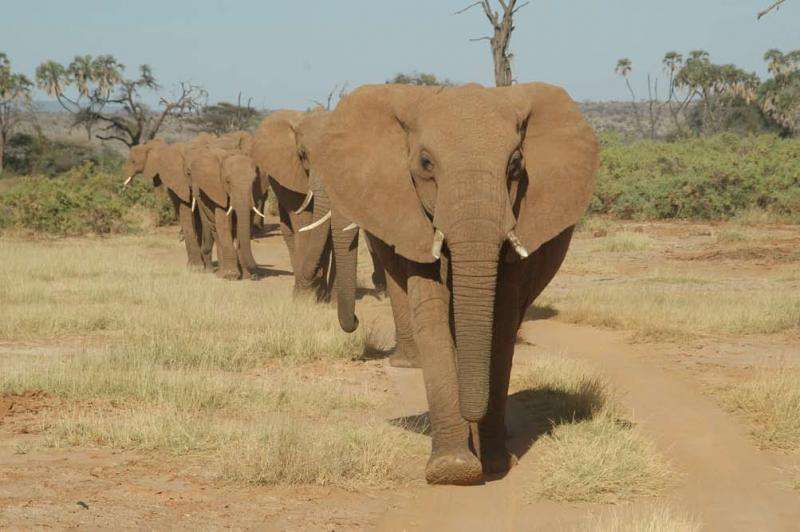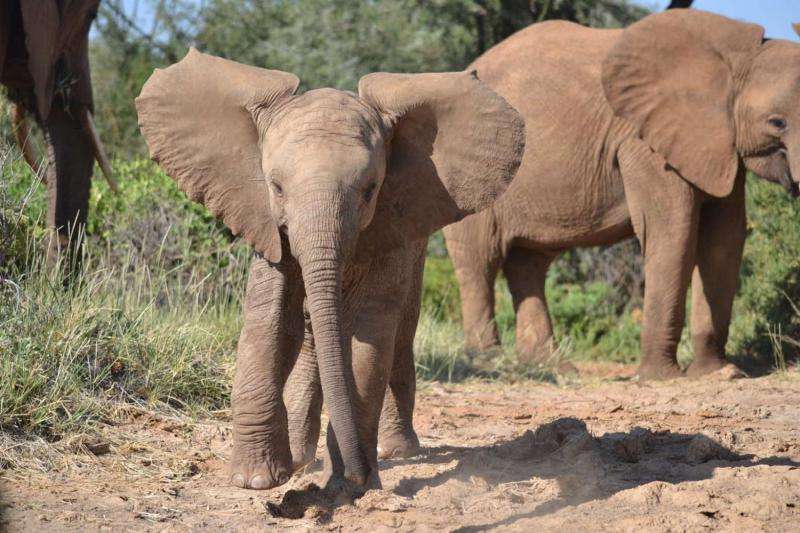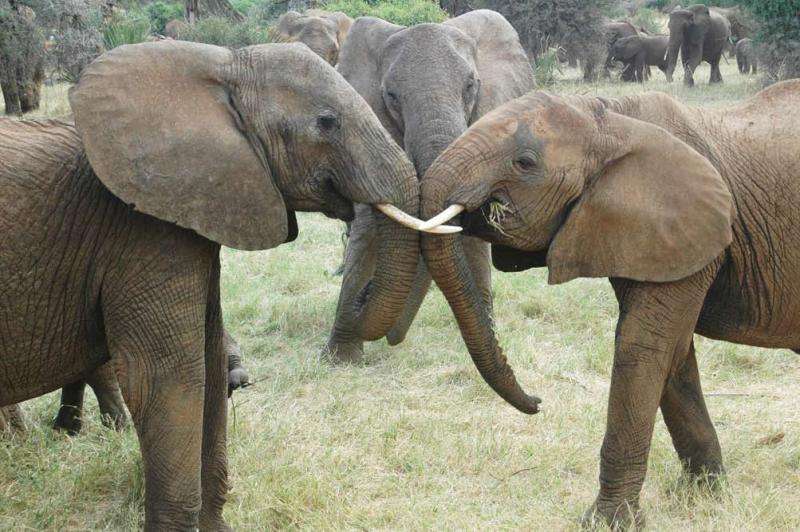Despite poaching, elephants' social networks hold steady

While the demand for ivory has put elephants under incredible pressure from poachers, their rich social networks have remained remarkably steady. That's according to evidence on the grouping patterns among adult female elephants living in northern Kenya over a 16-year period, which show that daughters often step up to take the place of their fallen mothers. The findings are reported in the Cell Press journal Current Biology on December 17.
"We were surprised at just how important a mother's associates were to her daughter's new bonds," says Shifra Goldenberg of Colorado State University. "In the past we've seen young females hanging out together that we wouldn't expect to, but then later as we do the analysis we see that their mothers did know each other and spent some time together."
According to estimates, poachers killed about 100,000 of Africa's elephants for their ivory between 2010 and 2012. Older and more experienced individuals are at greater risk of poaching because of the size of their tusks. As a result, the average age of adult female elephants in Kenya's Samburu National Reserve has declined significantly.
Studies of the elephants' social structure conducted over many years have found a level of complexity that rivals that of human societies. In the new study, the researchers analyzed the patterns of elephants' social networks over time. They also examined how elephant mothers, who hold an important role as matriarchs in elephant societies, shape their daughters' social lives.
The researchers, including Colorado State's George Wittemyer and Save the Elephants Founder Iain Douglas-Hamilton, found that the structure of the Kenyan elephants' social network was maintained over time, despite a 70 percent turnover of individuals. Generally speaking, the oldest and most experienced remaining individuals stepped up to fill socially central "hubs" in the network.

The researchers also found that they could predict the social positions of daughters after a disruption based on that of their mothers in the years before. That ability of daughters to fill the social network roles of their mothers drove the observed network resilience. In extreme situations where families had lost most of the mature adults, elephants created new networks from previously distant connections.
"The fact that elephants are socially resilient is an important and exciting finding, showing their innate resilience to this unfortunate human pressure," Goldenberg says. "You might expect a society centered around matriarchs to collapse with the loss of group matriarchs, but our study shows that they can adapt to these changes."

While the findings show reason for hope, it's clear that poaching has reached an unsustainable level, the researchers say.
"This social robustness was demonstrated across groups that experienced major and minor disruption," Wittemyer said. "It provides optimism regarding the ability of elephants to recover from human disturbance once we manage to offer them a respite from the pressure."
More information: Current Biology, Goldenberg et al.: "Vertical Transmission of Social Roles Drives Resilience to Poaching in Elephant Networks" dx.doi.org/10.1016/j.cub.2015.11.005
Journal information: Current Biology
Provided by Cell Press





















